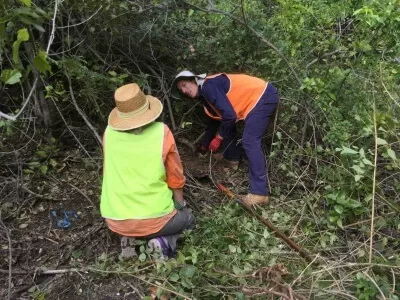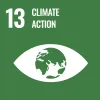Overview
Volunteering Solutions, en asociación con nuestra organización asociada en Nueva Zelanda, reúne a voluntarios para plantar y cuidar árboles nativos, controlar plagas y malezas y proteger especies amenazadas. Si compartes un amor innato por las especies en peligro de extinción y por la Madre Naturaleza en general, entonces el Programa de Voluntariado para la Conservación en Nueva Zelanda sería la opción perfecta para ti.
Nueva Zelanda es un país pintoresco situado en el suroeste del océano Pacífico y formado por dos islas principales, ambas con volcanes y glaciares. Sin embargo, en las últimas décadas, debido al considerable cambio del clima y al aumento general de la temperatura, la belleza natural del país se ha visto enormemente afectada.
Es a través de estos programas que tendrás la oportunidad de ver la verdadera naturaleza salvaje del medio ambiente de Nueva Zelanda, y al ayudar con el corte de vías, el control de plagas y el monitoreo de animales, harás una contribución duradera a la conservación de estos lugares y las criaturas que viven allí en los años venideros.
Ya sea plantar árboles en invierno, liberarlos en primavera y verano o preparar el terreno para plantar durante el otoño, te divertirás mucho y siempre encontrarás algo nuevo que aprender durante tu viaje de voluntariado en Nueva Zelanda.
Proyecto de voluntariado en la Isla Norte de Nueva Zelanda
La Isla Norte cuenta con numerosos ríos, regiones volcánicas, playas solitarias pero espectaculares, así como densas selvas tropicales y paisajes rurales. Los voluntarios que se unan al proyecto en la Isla Norte deberán comenzar su viaje desde Auckland o Wellington, donde se reunirán con nuestros coordinadores locales.
AUCKLAND - En Auckland, los proyectos se centran en devolver la biodiversidad a la ciudad. Desde las plantaciones autóctonas a gran escala en el parque regional Ātiu Creek y el arroyo Papakura hasta el mantenimiento de senderos, la eliminación de malezas invasivas y la limpieza de basura, hay muchas formas de participar para apoyar al mundo natural.
WELLINGTON - En Wellington, los proyectos se centran en la creación de corredores para nuestras especies nativas. En Belmont Park, el equipo local está replantando un bosque con su ayuda. Hay una gran variedad de proyectos en los que puede participar, incluido el mantenimiento de senderos, la eliminación de malezas invasoras y la limpieza costera.
Proyecto de voluntariado en la Isla Sur de Nueva Zelanda
En Christchurch, los voluntarios están restaurando corredores fluviales y humedales para proteger mejor los cursos de agua de la región y sus numerosos pájaros, lagartos e insectos autóctonos. Trabajarás en nuestro sitio principal en el corredor del río Ōtakaro Avon, así como en proyectos más pequeños en toda la ciudad. También ayudarás con nuestros proyectos en el hermoso puerto Whakaraupō Lyttelton.
Horario de trabajo voluntario
Horario de trabajo voluntario
Los proyectos normalmente se llevan a cabo durante 5 días a la semana, con uno o dos días libres por semana para relajarse o hacer turismo. El horario del proyecto es de 8:00 a 16:00 horas todos los días, aunque esto puede variar en algunos proyectos cuando lo requieran las condiciones estacionales o las actividades del proyecto.
Los voluntarios viajan a un lugar diferente del proyecto cada semana o dos. Esto significa que en una experiencia de conservación de seis semanas, puedes visitar una variedad de lugares y realizar varias actividades de conservación diferentes, según las necesidades de conservación y la disponibilidad del proyecto en ese momento. Incorporamos la mayor variedad posible a nuestro programa, mientras nos centramos en la conservación esencial como resultado principal.
Todos los voluntarios reciben una sesión de orientación que dura aproximadamente una hora y que se proporciona cuando llegan para unirse al programa a las 11 am de un viernes.
A continuación, los voluntarios serán trasladados al alojamiento local para voluntarios o a destinos regionales en tren, autobús o vehículo (nos encargamos de organizar todos los viajes para los voluntarios). El primer fin de semana es tiempo libre para los voluntarios, aunque ocasionalmente puede ser necesario viajar un poco el domingo si van a un lugar muy remoto del proyecto.
Se avisará a los voluntarios cuando su líder de equipo los recogerá para el primer proyecto, generalmente a las 8 a. m. del lunes por la mañana (los horarios pueden variar levemente según la temporada).
En cada lugar del proyecto se realizan inducciones adicionales, a cargo del líder del equipo, antes de que los voluntarios comiencen cada actividad. Estas incluyen:
Los objetivos de conservación del proyecto específico
Cómo se llevará a cabo, incluida cualquier instrucción o capacitación requerida para los voluntarios
Información de seguridad esencial
Instalaciones en el sitio / cerca
Funciones y responsabilidades de los voluntarios
Funciones y responsabilidades de los voluntarios
Los tipos de actividades que realizarán los voluntarios dependen de la temporada y de las necesidades de conservación de la zona. Aunque los voluntarios no pueden elegir el tipo de actividad que realizan, trabajamos arduamente para garantizar que experimenten una amplia gama de oportunidades y lugares.
En verano, sus actividades pueden incluir la cría de plántulas autóctonas, la limpieza de basura, la eliminación de malezas, el mantenimiento de caminos y senderos, y más. En invierno, se dedicará principalmente a plantar y preparar los sitios para plantar.
Antes de ofrecerse como voluntario en un proyecto, el líder de su equipo le explicará los objetivos del proyecto y le ayudará a completar la actividad de forma segura y eficaz.
El tipo de proyecto depende de la época del año, el clima y el trabajo de cada equipo local. Tenga la seguridad de que tendrá un impacto en la biodiversidad de Nueva Zelanda.
Debes estar en condiciones físicas razonables y preparado para participar lo mejor que puedas. Tu líder de equipo te mostrará cómo usar todas las herramientas y el equipo de manera segura antes de comenzar cada proyecto, y siempre estará allí para ayudarte. Siempre pregunta si no estás seguro de las instrucciones: ¡estamos aquí para ayudarte!
Project Requirement
Project Requirement
Los voluntarios deben tener 18 años o más al momento de unirse al proyecto. Necesitas tener una mente abierta y una actitud flexible para trabajar en un entorno nuevo y diferente. El voluntario debe aportar energía y entusiasmo para marcar la diferencia y debe estar dispuesto a trabajar al aire libre y ensuciarse las manos. Debe estar en buena forma física, ya que el voluntariado en este programa implicaría tareas al aire libre que pueden ser extenuantes.
Schedule a Google Meet with a Program Advisor
Interested in our programs? We're here to provide expert guidance
- Get Detailed Info
- 20 min One -on-One meeting
- Get expert advise
- Application Guidance
Photo Gallery
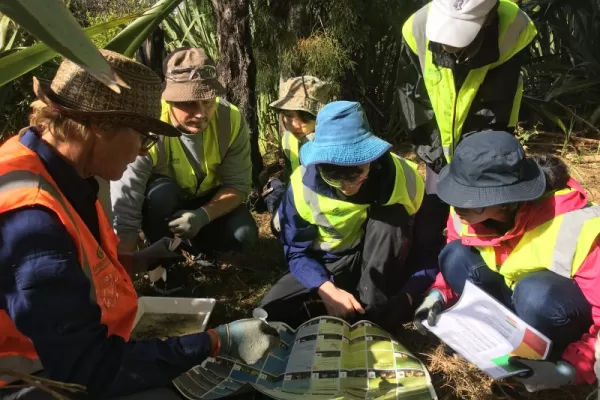
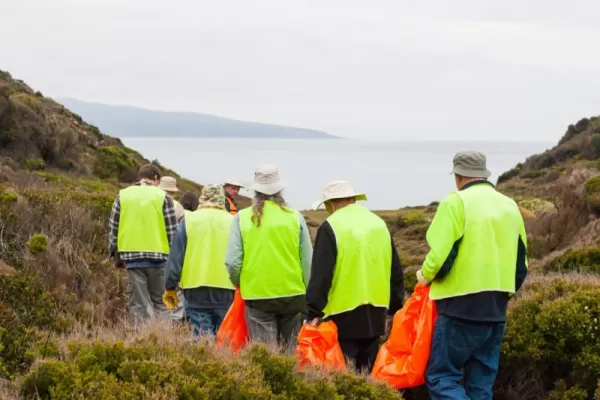
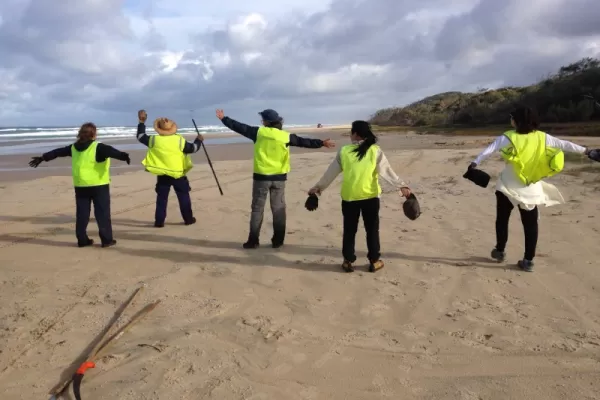
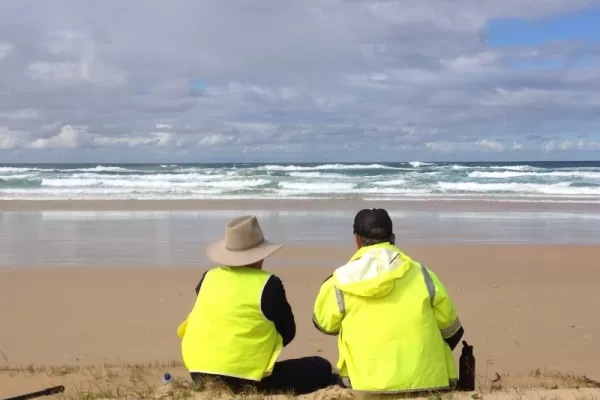
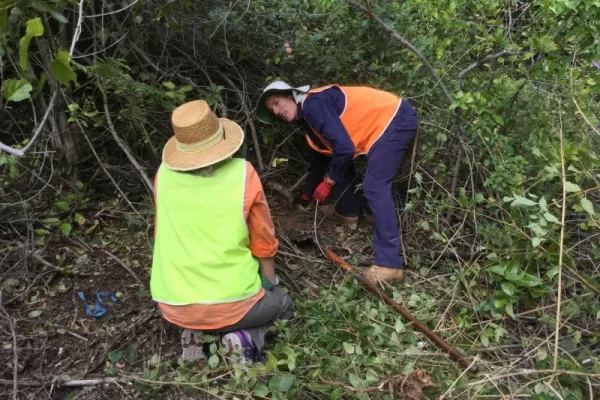
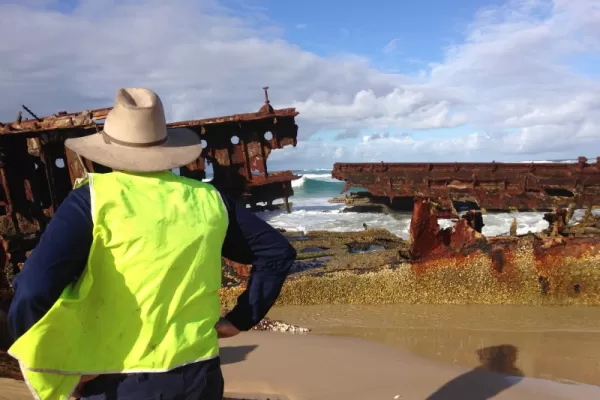
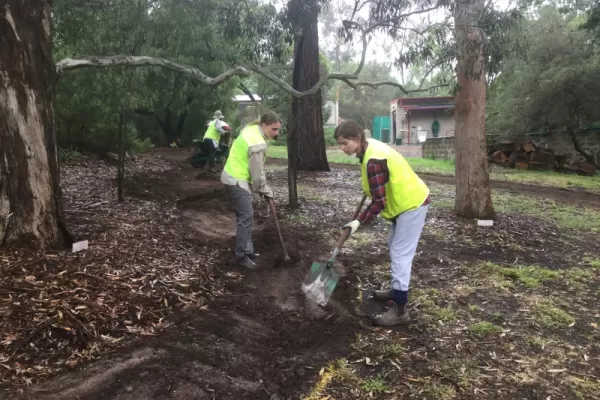
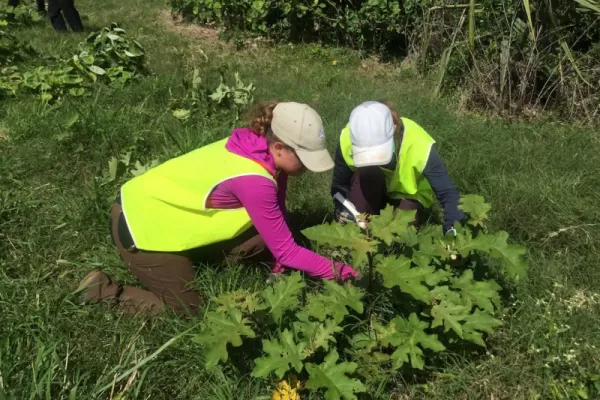
Living
Living
Llegada a Nueva Zelanda
Todos los participantes deben llegar a la dirección del punto de encuentro que se les proporcionó en la fecha de inicio del programa, es decir, el viernes a las 11 a. m. La dirección completa y las instrucciones se proporcionarán a los participantes de antemano. El servicio de recogida en el aeropuerto no está incluido en el programa y los participantes deben llegar directamente a la dirección proporcionada.
Alojamiento
El tipo de alojamiento proporcionado a los voluntarios varía según el proyecto y la ubicación. Dado que hay varios lugares para elegir, los voluntarios se ubicarán en un alojamiento compartido estilo albergue, o en una caravana o en un campamento. Todos los alojamientos serán limpios, cómodos y compartirán personas del mismo sexo. Se requiere que todos los voluntarios traigan un saco de dormir. Todo el alojamiento y las comidas están incluidas durante el programa de Experiencia de Conservación, los fines de semana (tiempo libre) así como durante los días del proyecto está incluido en el programa. Este comienza desde el viernes en que llega el voluntario para comenzar su programa. La primera comida es el almuerzo del viernes por la tarde y el alojamiento también está incluido a partir del viernes por la noche.
Orientación
Tan pronto como llegue a la ubicación de su elección, debe presentarse en el sitio de su proyecto asignado, donde será recibido por su coordinador de proyecto. Él / ella le dará una orientación detallada. En la Orientación se cubrirán áreas como seguridad, ubicaciones, transporte, cosas para ver, etc. Después de que termine su orientación, se le presentará su proyecto. Dependiendo de la fecha de llegada, usted puede tener el fin de semana para explorar el lugar y es libre de hacerlo.
Comidas
Las comidas proporcionadas reflejan la dieta local dentro de Nueva Zelanda. Para el desayuno, los voluntarios generalmente reciben cereales, pan o tostadas, té y café. El almuerzo es normalmente un sándwich hecho por uno mismo y fruta; por la noche, los voluntarios disfrutan de una comida preparada por el grupo, normalmente algo como pasta, asado o una opción vegetariana. Los voluntarios ayudan con la preparación de las comidas y la limpieza de los platos, además de algunas tareas domésticas según sea necesario. Confiamos en que cada voluntario participe plenamente en el programa, y la cena es una parte popular del día. Podemos atender a los vegetarianos, pero si los voluntarios tienen requisitos dietéticos muy específicos (por ejemplo, alergias alimentarias), es posible que deban proporcionar su propia comida.Indique cualquier requerimiento dietético especial al momento de la reserva.
Durante tu tiempo libre
Tendrá tiempo libre los fines de semana y hay muchas cosas que hacer y muchos lugares que se pueden visitar durante los fines de semana. Los participantes pueden viajar a las principales ubicaciones de la ciudad los fines de semana, según el tiempo libre asignado por el líder del proyecto. Para aquellos participantes en la Isla Norte, pueden dirigirse a Auckland para explorar la ciudad y aquellos en la Isla Sur, pueden dirigirse a Queenstown o Christchurch durante el fin de semana.
Dates
Dates
January
10
17
24
31
February
07
14
21
28
March
07
14
21
28
April
04
11
18
25
May
02
09
16
23
30
June
06
13
20
27
July
04
11
18
25
August
01
08
15
22
29
September
05
12
19
26
October
03
10
17
24
31
November
07
14
21
28
January
09
16
23
30
February
06
13
20
27
March
06
13
20
27
April
03
10
17
24
May
01
08
15
22
29
June
05
12
19
26
July
03
10
17
24
31
August
07
14
21
28
September
04
11
18
25
October
02
09
16
23
30
November
06
13
20
27
Available
Filling Fast
Booked Out
Costs
| Duration |
Program Fee
|
Choose your currency
|
|---|---|---|
| 1 Week | $582 | |
| 2 Weeks | $1014 | |
| 3 Weeks | $1495 | |
| 4 Weeks | $1950 | |
| 5 Weeks | $2395 | |
| 6 Weeks | $2845 | |
| Extra Week | $595 |
Please Note: An application fee of is charged over and above the program fee as an application payment. A 5% international banking fee is charged for credit card payments of program fee in USD/AUD.
¿Qué estás pagando?
- Todas las comidas, incluso los fines de semana.
- Todos los alojamientos, incluidos los fines de semana
- Viajes relacionados con el proyecto
- Voluntarios de vida silvestre o guía de plantas.
- Información previa a la salida
- Orientación e Inducción a la llegada
- Apoyo a Proyectos Locales
¿Qué NO está incluido?
- Viaje al punto de partida en la oficina
- Cargos por visa y pasaporte
- Costo de vuelos
- Tasas de salida, aeropuerto y aerolínea
- Lavandería, gastos médicos, seguro personal de viaje y artículos de carácter personal
FAQ's
Application and Program Details
-
What is the best time to apply for the volunteering project in New Zealand?
-
As we have limited spots available in our programs and we serve on first come first basis, it is strongly recommended to apply for the program and reserve your spot in the program well in advance. You can book your spot in the program by filling an online form and pay the application fee.
Once you complete your application, your individual 'My Account' will be active in which you will receive your placement confirmation after which you can pay the program fees. You can pay the program fees later as well in installments, but 45 days before the program starts. -
Can I volunteer with a friend?
-
We accept bookings from individuals – you can apply by yourself, or with one friend. For groups larger than two, we recommend you consider booking onto different teams, or choose a group booking if you all wish to be together on the same project. If you’re volunteering by yourself, don’t worry –most people join as individuals and you’ll make friends very quickly!
-
Can I choose which conservation activities I’d like to do?
-
No. Our program varies, depending on the time of year, weather and conservation priorities. We’ll put together a program of conservation activities for you.
-
What time will I leave the program?
-
Our programs finish on Fridays. Activities are normally completed by 4 pm, however, you may then need to travel back with the rest of your team to our office or catch a train back to the city (we’ll organize travel for you). Our Team Leaders will usually offer to drop you off near the town center, station or bus stop if it’s convenient, or you can call a taxi to pick you up from the office.
-
How Long Does It Take to Process My Application? Will My Application Be Accepted?
-
After you complete your application, your personalized ‘My Account’ will be active. You will need to upload your CV/Resume along with your photo in the same. Our backend team and the placement site takes around 10-12 days to review your application. After we review your CV and documents, your booking is confirmed and booking confirmation is updated in your ‘My Account’. Some projects need a mandatory criminal background check and the same is mentioned in the project info of your program. Approval of your application depends on your qualification and eligibility criteria for each project.
-
Do I need any special skills to volunteer?
-
No – just be prepared to join in the best of your ability! There will always be a Team Leader with you, who is there to explain the project to you (including the conservation reasons), show exactly you what to do and how to do it safely. You’ll learn plenty of new skills on this program.
-
Will I do the same activities every day?
-
It will depend on circumstances and the need, of course. On some weeks, you make complete a major project, such as being part of a team planting a thousand trees or building a walking track. On other weeks, you may do a variety of activities every day. Each week or two, your projects will change to a new location. We include as much variety in the program as possible while maintaining the focus on conservation priorities because this is what you have volunteered to help with.
-
Can I get a discount to be a part of this program?
-
Incase you are a returning volunteer, you’ll get a $50 discount on the application fee. Also, in case you are coming in a group of 5 or more, you ask for a discount and we’ll surely look into it.
-
How long can I volunteer for, in New Zealand?
-
As long as you wish! We would say, the more the better! Most of the volunteers join our program for at least four weeks, but many stay much longer. Remember that you can book a number of starting locations and arrange your own travel to fit volunteering in with your travel plans around New Zealand. Our programs run in weekly blocks, starting on Fridays at 11 am and finishing on Fridays after 4 pm.
Note: If you are staying more than one week, weekend meals and accommodation are of course included. -
Is there an induction or orientation? What happens when I start the program?
-
Yes. The Orientation Session takes place on Friday when you start your program. We’ll explain everything you need to know, including essential safety information, and introduce you to our staff and fellow volunteers. After that, you’ll have some free time to relax and get to know the other volunteers, before starting your first project on Monday.
-
How much time will I spend on conservation projects? How much free time will I have?
-
Our programs usually run from Monday to Friday, with weekends free. This may change from time to time on remote projects, where volunteers spend 10 days in a remote location, followed by a longer break, or when travel to a project site is required on weekends. Project hours are normally from 8 am – 4 pm.
-
Can I get any sort of acknowledgement after I complete my work?
-
Yes, Volunteering Solutions will provide you a Certificate of Completion, once you finish your work.
-
Why should I choose to volunteer?
-
The concept of volunteering differs from a normal ‘holiday’ in many ways. Volunteering is time willingly given in order to make a difference, without aiming for a financial gain. It’s all about doing something for the benefit of someone, or something, else – in this case, the environment! Although volunteering means giving time and effort to a cause, there are of course benefits for the individual volunteer as well. Some of the skills that volunteers can expect to gain while taking part in our programs include:
Teamwork: our projects all take place in teams, led by one of our friendly Team Leaders. Sometimes, you peers are local people, sometimes they are from other countries or a mixture of the two. There may be a lot of others (maximum of 10 volunteers per team) or just a couple of them.
Communication and People Skills: being part of a team of volunteers in a different country is a great way to build communication and people skills! It’s a really enjoyable aspect of our program, and even the shyest volunteer can build their confidence as part of a friendly group volunteering for a common aim.
Adaptability / Self-Management: volunteers set themselves a challenge just by deciding to volunteer in the first place. Following through and completing their commitment is a great outcome and something to be proud of. Adaptability is demonstrated by living in another country as an independent adult volunteer. -
Can I volunteer at more than one starting location?
-
Yes, of course, many volunteers choose to make bookings from two or more starting locations. If you choose this option, you’ll need to arrange and pay for your own travel between starting locations. You should either leave a week in between your bookings or arrange to re-join at your new starting location on Monday morning as we cannot accommodate volunteers arriving on weekends.
-
When will I know what activities I’ll be doing during my Conservation Experience?
-
As most of our programs are dependent on seasonal conditions as well as a conservation priority, we usually assign resources and volunteers around 2 weeks before each project starts. We’ll let you know what activities you’ll be doing at your induction on arrival.
-
What happens on weekends?
-
Unless you’re on a remote project, weekends are your free time to relax and enjoy some local sightseeing. Food and accommodation are provided. Ask our staff for suggestions if you need some sightseeing ideas!
Flights and Visa
-
Can I know more about how to get a Visa for New Zealand?
-
If you are a citizen of the UK or any country which has a visa waiver agreement with New Zealand, you can stay in the country for 3 months without a Visa. However, getting a Visa isn't much of a difficult task. You can simply fill the Online Application form and opt for the Visa. For more information regarding the Visa, you can https://www.newzealand.com/int/visas-and-immigration/"; target="_blank">check here or get in touch with our Program Advisor.
-
Will I be picked up from the airport when I arrive?
-
No, you will need to make your own way to the meeting point/office which is your starting point. All the meeting points/offices are in reasonably central locations, and we will provide directions to help you get there. You need to plan to arrive at the office by 11 am on Friday morning, and be ready to start your program.
Accommodation and Living
-
What kind of meals will be provided to me?
-
We provide wholesome food based on a typical local diet for the volunteers in New Zealand. Meals are a group activity with all volunteers helping with cooking and cleaning. Meal examples include cereals, toast, tea and coffee for breakfast; sandwiches and fruit for lunch; and meals like pasta, BBQ, curries or stir-fries for dinner.
-
How much luggage can I bring?
-
It's always better to travel light. As space is limited, we ask that volunteers keep their luggage to a maximum of 15kgs in a backpack or soft-sided bag. We suggest that volunteers bring a small daypack to carry lunch, sunscreen, water bottle etc.
-
How much money should I carry?
-
Every volunteer is different and therefore spending money requirements vary. Some volunteers spend more on going out on weekends, doing touristic activities and buying souvenirs etc., so consider your own spending habits and budgeting abilities when it comes to deciding how much money to bring. The amount of spending money you bring is entirely up to you – it varies from volunteer to volunteer. While you are in the program, you only need enough spending money for social activities and sightseeing on weekends.
All food, accommodation, and travel costs are included while you are volunteering and on weekends in between volunteer projects. You will need to budget some money for laundry costs (laundromats are commonly available with coin-operated washers and dryers). -
Can I bring a laptop or tablet with me?
-
This is absolutely a personal choice. You should be aware that we cannot provide insurance or guarantee safe storage for items like laptops – you will need to take full responsibility for looking after it.
-
Will I share a bedroom or bathroom with other people?
-
Yes, all accommodation and bathrooms on this program are shared.
Depending on the project location and style of accommodation, rooms may be shared or there may be separate rooms for male and female volunteers. -
What mobile phone coverage can I expect?
-
Mobile coverage can be limited outside major cities.
-
Is internet access available?
-
You will usually be able to find an internet café or library with internet access on weekends. Internet access is not provided at volunteer accommodation – even if you have your own laptop, wireless broadband is not often readily available outside major cities.
Health and Safety
-
Is the program suitable for children?
-
Our program is suitable for adult volunteers aged 18 – 70.
-
How fit do I need to be?
-
This is an active program, and you should be reasonably fit. If at any time you have a concern about your fitness for any activities, please speak to your Team Leader.
-
What if I have a pre-existing medical condition or an injury?
-
You need to declare any pre-existing medical conditions, allergies or injuries when you make your booking. The information you provide is kept in confidence, but it will help us to manage your condition safely. It’s always best to tell us so that we can look after you properly.
In some cases, we may ask you to obtain some further information from your doctor before we can accept your booking.
If we feel that we are not able to accept your booking because we do not think it will be safe for you to take part, we reserve the right to refuse the booking. In this case, we will, of course, give a full refund of any money paid so that you can find an alternative program to join.


























